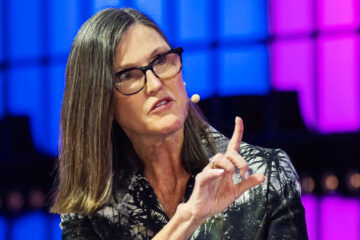The fast-food giant battles with McDonald’s in the U.S. and around the world.
Fast-food marketing often struggles against fast-food reality. Big chains like Restaurant Brands International’s (QSR) – Get Restaurant Brands International Inc Report Burger King and McDonald’s (MCD) – Get McDonald’s Corporation Report generally have to pretend as if they care about their customer’s well being and those same customers do as well.
The reality is that people visit a McDonald’s or a Burger King looking for indulgence. If we wanted a salad or a nice piece of fresh fish, we probably would have gone somewhere else.
Everyone understands this, but fast-food chains still face enormous pressure to offer healthier choices, even if history shows people don’t want them. That leads to things like the McPlant and Impossible Whopper plant-based burgers, and other choices like offering apple slices instead of fries with a Happy Meal.
No kid actually wants that and McDonald’s actually did away with its salads due to lack of demand. Realistically, two chains famous for The Whopper and the Big Mac respectively, probably aren’t showing up on a lot of healthy eating lists even if they offer something sort of healthy.
That’s why Burger King has decided to do something different. It offers an item in a variety of countries around the world that’s definitely not healthy, but it’s made from ingredients most people would consider good for you — and then it’s deep-fried.
Naomi Baker/Getty Images
Burger King Goes Unhealthy Healthy
Being a vegetarian or even a vegan does not mean always eating healthy. People who don’t eat meat can indulge and opt for a meat-free existence does not mean not eating fried foods (you just have to make sure they’re cooked in the right kind of oil.)
That’s a food choice, Burger King has leaned into in multiple markets around the world. The fast-food giant has BK Veg Strips on its menus in a number of countries, including India, but not the U.S. These look like a cross between a french fry and a mozzarella stick and are essentially a variety of vegetables (onions, corn, peppers, peas, and more) cooked together then breaded and fried.
You can’t call BK Veg Strips healthy, but they do contain foods that are considered good for you. Of course, taking a carrot, rolling it in fudge, then battering and deed-frying it sort of mutes the point of eating a carrot in the first place.
This is Burger King leaning into the local eating culture in markets including India, where meat is less popular. Most importantly, it’s not the fast-food chain trying to be something it isn’t. It’s Burger King finding a way to deliver an indulgent fast-food experience for customers who happen to not eat meat or are choosing not to at that moment.
Burger King Wants All Customers
Burger King has shown that it understands what people want from it and that it can’t be all things to all people. Offering healthy choices and options that fit different diets while still being a fast-food chain that offers indulgence fits the company’s brand.
This recipe has helped Burger King grow around the world but it remains smaller than McDonald’s globally. The chain has over 12,000 restaurants outside the U.S. and derives about 60% of its revenue from them, according to COO Joshua Kobza’s remarks during the chain’s third-quarter earnings call.
“Despite this robust international development, Burger King still has only half the number of restaurants globally versus the leading competitor, including only a third of the number of restaurants in Asia-Pacific, where we are building a strong foothold.,” he said. “As a result, we continue to see Burger King as a significant growth engine, and based on our current pipeline, we expect it to be the largest contributor to our net restaurant growth for the foreseeable future.”
BK Veg Strips alone won’t spur international growth, but they’re a sign that the company can adapt as it expands its operations. And, of course, a model that works around the world may well work in the U.S. where fried veggies might be just what the doctor wouldn’t order.


